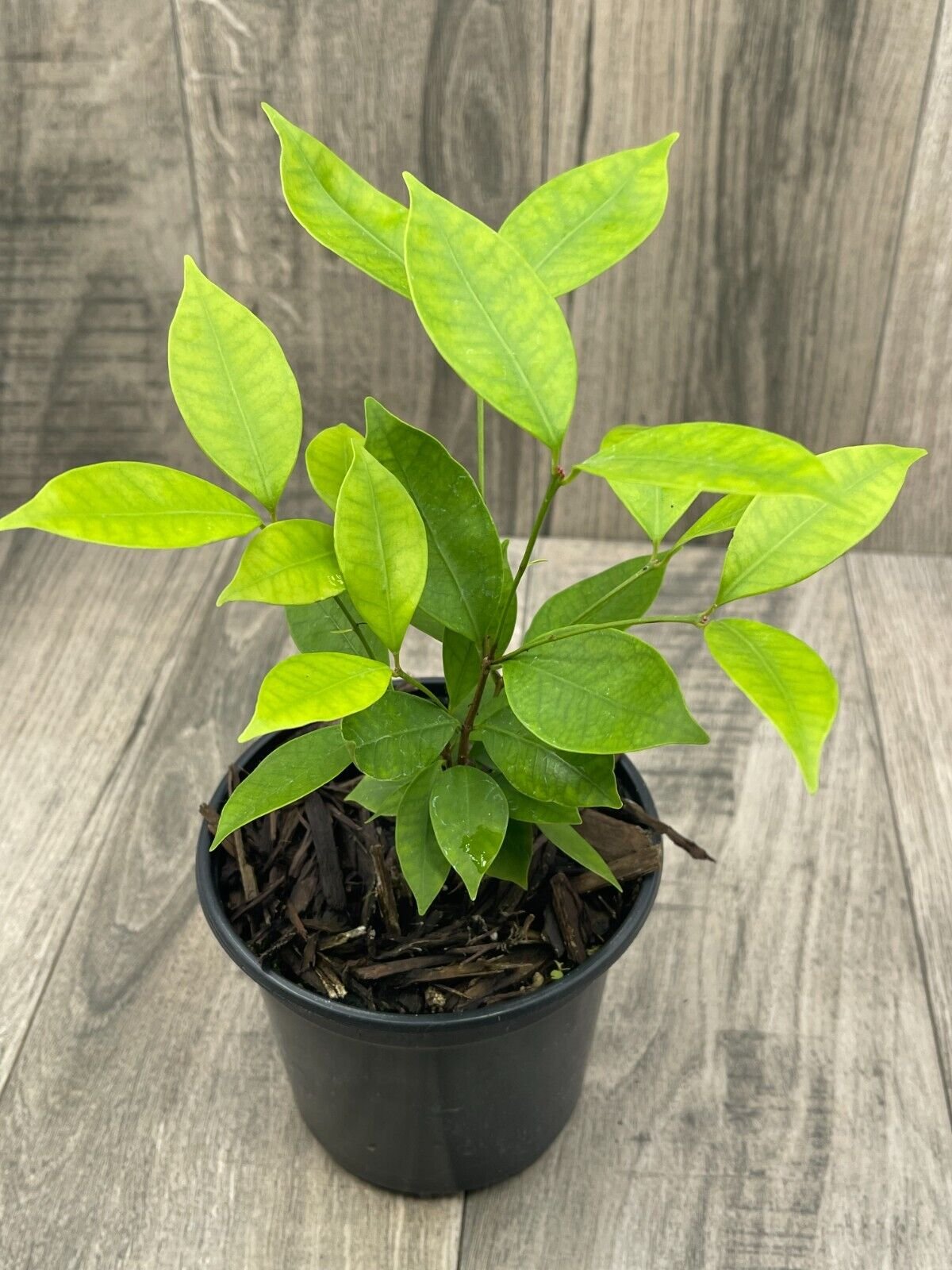GUAJAÍ-UNA - Eugenia Captulifera
GUAJAÍ-UNA comes from Guarani and means “fruit with a different shape” and Uma means “black” and in fact the fruit of this species sometimes has a round, oval or even pyriform shape. It also receives the name of black pear. Native to the understory of the Atlantic Forest of the state of Espirito Santo, Rio de Janeiro and Paraná, Brazil. It is a very rare species in nature, so it needs to be cultivated and preserved! Medium-sized tree, reaching 2 to 3 m in full sun and up to 8 meters high in the forest. The leaves are simple, cartaceous, glabrous (hairless) obovate (egg-shaped but with a broad part at the apex) measuring 3 to 7 cm long by 1.8 to 3 cm wide, with a wedged base ( wedge-shaped) and long acuminate and sometimes recurved apex. The species can be easily identified by observing the flowers in capitula or grouped in head-shaped bundles when in bud; with 3 to 7 flowers with pedicels or stems 2 to 3 mm long. The open flower is white and measures 1cm in diameter with calyx 4 lobed and corolla with 4 to 5 unguiculate white petals (nail-shaped – narrower at the base and wider at the apex). The fruits have different formats as explained above, with a thin and black skin when ripe, measuring 1.5 to 3 cm by 1.8 to 2 cm in width, with fleshy, tasty pulp, involving 1 or 2 seeds. The photo is an example of the plant you will recieve.
GUAJAÍ-UNA comes from Guarani and means “fruit with a different shape” and Uma means “black” and in fact the fruit of this species sometimes has a round, oval or even pyriform shape. It also receives the name of black pear. Native to the understory of the Atlantic Forest of the state of Espirito Santo, Rio de Janeiro and Paraná, Brazil. It is a very rare species in nature, so it needs to be cultivated and preserved! Medium-sized tree, reaching 2 to 3 m in full sun and up to 8 meters high in the forest. The leaves are simple, cartaceous, glabrous (hairless) obovate (egg-shaped but with a broad part at the apex) measuring 3 to 7 cm long by 1.8 to 3 cm wide, with a wedged base ( wedge-shaped) and long acuminate and sometimes recurved apex. The species can be easily identified by observing the flowers in capitula or grouped in head-shaped bundles when in bud; with 3 to 7 flowers with pedicels or stems 2 to 3 mm long. The open flower is white and measures 1cm in diameter with calyx 4 lobed and corolla with 4 to 5 unguiculate white petals (nail-shaped – narrower at the base and wider at the apex). The fruits have different formats as explained above, with a thin and black skin when ripe, measuring 1.5 to 3 cm by 1.8 to 2 cm in width, with fleshy, tasty pulp, involving 1 or 2 seeds. The photo is an example of the plant you will recieve.
GUAJAÍ-UNA comes from Guarani and means “fruit with a different shape” and Uma means “black” and in fact the fruit of this species sometimes has a round, oval or even pyriform shape. It also receives the name of black pear. Native to the understory of the Atlantic Forest of the state of Espirito Santo, Rio de Janeiro and Paraná, Brazil. It is a very rare species in nature, so it needs to be cultivated and preserved! Medium-sized tree, reaching 2 to 3 m in full sun and up to 8 meters high in the forest. The leaves are simple, cartaceous, glabrous (hairless) obovate (egg-shaped but with a broad part at the apex) measuring 3 to 7 cm long by 1.8 to 3 cm wide, with a wedged base ( wedge-shaped) and long acuminate and sometimes recurved apex. The species can be easily identified by observing the flowers in capitula or grouped in head-shaped bundles when in bud; with 3 to 7 flowers with pedicels or stems 2 to 3 mm long. The open flower is white and measures 1cm in diameter with calyx 4 lobed and corolla with 4 to 5 unguiculate white petals (nail-shaped – narrower at the base and wider at the apex). The fruits have different formats as explained above, with a thin and black skin when ripe, measuring 1.5 to 3 cm by 1.8 to 2 cm in width, with fleshy, tasty pulp, involving 1 or 2 seeds. The photo is an example of the plant you will recieve.







